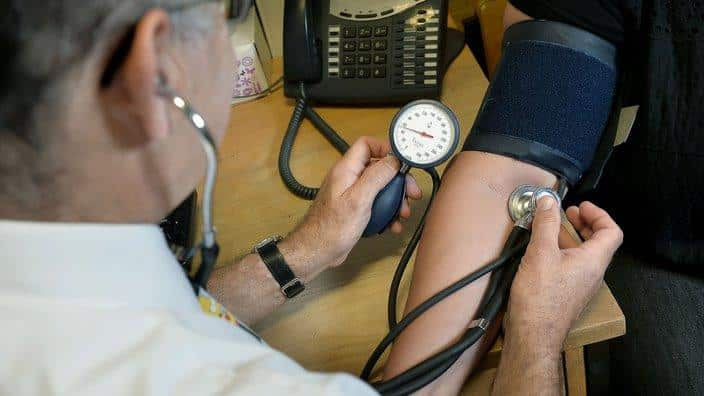Very soon, one will be able to measure their blood pressure and monitor it regularly with their smartphone.
A team of scientists, which includes Indian PhD students, at Michigan State University in the US have developed a new smartphone app that could help measure blood pressure more accurately than existing cuff devices, The Hindu reports.
The lead author of the study published in the journal Science Translational Medicine is Anand Chandrasekhar, a doctoral student at MSU.
Their app installed on a modified smartphone can use fingertip to measure blood pressure.
The approach uses two sensors: an optical sensor on top of a force sensor.
The sensor unit and other circuitry are housed in a one centimeter-thick case attached to the back of the phone.
Users turn on the app and press their fingertip against the sensor unit. With their finger on the unit, they hold their phone at heart level and watch their smartphone screen to ensure they are applying the correct amount of finger pressure.
"Being able to use your fingertip makes our approach much easier and more accessible," said Chandrasekhar.
"A key point was to see if users could properly apply the finger pressure over time, which lasts as long as an arm-cuff measurement," said Ramakrishna Mukkamala, professor at MSU.
"We were pleased to see that 90 per cent of the people trying it were able to do it easily after just one or two practice tries," said Mukkamala.
The study states while high blood pressure is treatable with lifestyle changes and medication, only around 20% of people with hypertension have their condition under control.
This invention gives patients a convenient option, and keeping a log of daily measurements would produce an accurate average, discounting an occasional measurement anomaly, Mukkamala said. Recent studies from India have shown the prevalence of Hypertension (abnormally high blood pressure) to be 25% in urban and 10% in rural people in India.
Recent studies from India have shown the prevalence of Hypertension (abnormally high blood pressure) to be 25% in urban and 10% in rural people in India.

Blood pressure Source: AAP
According to the WHO 2008 estimates, the prevalence of raised BP in Indians was 32.5% (33.2% in men and 31.7% in women). However, only about 25.6% of treated patients had their BP under control, in a multicenter study from India on awareness, treatment, and adequacy of control of Hypertension.
Share
